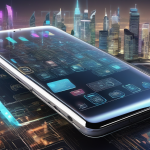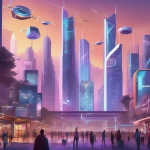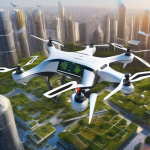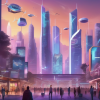AI-Generated Novels: The Future of Storytelling?
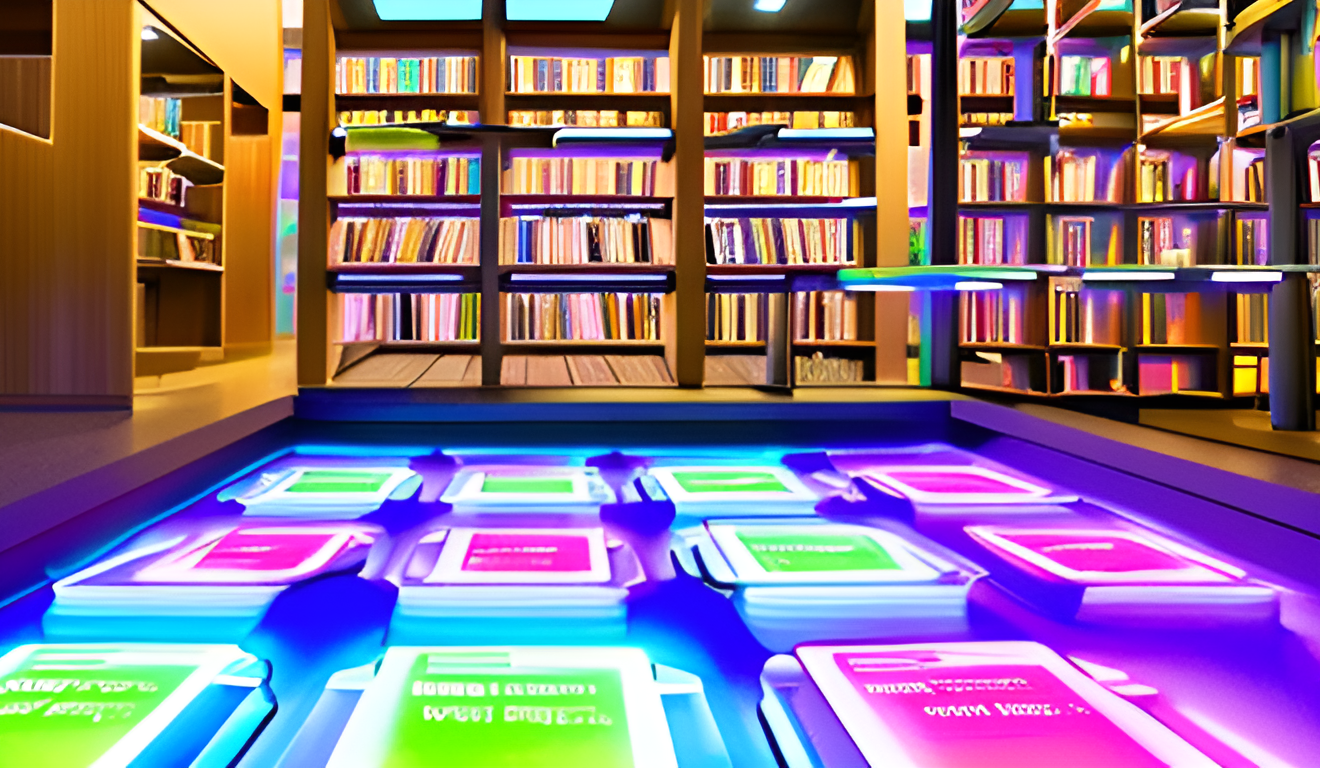
In recent years, the literary world has witnessed a remarkable transformation with the advent of AI-generated novels. Imagine a future where stories are crafted not just by human hands, but by complex algorithms that analyze countless narratives, weaving together plots and characters in ways we never thought possible. This evolution raises an intriguing question: can machines truly capture the essence of storytelling? As we delve into this topic, we will explore the implications of AI on creativity, authorship, and the very fabric of literature.
AI’s journey in the realm of literature began with simple algorithms that could barely string together a sentence. Fast forward to today, and we have sophisticated tools that can generate entire novels, complete with intricate plots and character development. This shift not only reflects technological advancements but also highlights a fundamental change in how we conceive storytelling. With AI, the potential for novel ideas and unique narratives is virtually limitless, providing authors with a fresh canvas to explore.
However, the rise of AI in storytelling is not without its challenges. While these systems can churn out content at astonishing speeds, they often lack the emotional depth that human authors infuse into their work. Can a machine truly understand the nuances of human experience? This question looms large as we navigate the fine line between innovation and authenticity in literature.
As we ponder the future of storytelling, it’s essential to consider how readers will respond to this new form of literature. Will they embrace AI-generated novels, or will they seek the unique touch that only human authors can provide? The answers to these questions will shape the literary landscape for years to come.
The Evolution of AI in Literature
The journey of artificial intelligence in literature has been nothing short of fascinating. From its humble beginnings as simple algorithms designed to assist writers, AI has evolved into a sophisticated tool capable of crafting intricate narratives that can rival human creativity. Imagine a world where machines not only assist in storytelling but actually create entire novels on their own! This transformation is reshaping the literary landscape in ways we could only dream of a few decades ago.
Initially, AI’s role in writing was limited to basic functions, such as grammar checking and spell correction. However, as technology advanced, so did its capabilities. Today, AI can analyze vast amounts of text, learn from it, and generate unique stories based on various prompts. This leap in technology raises an intriguing question: Can machines truly understand the essence of a story? While they can mimic human writing styles, the emotional depth and personal experiences that human authors bring to their narratives remain challenging to replicate.
To better understand this evolution, consider the following stages:
| Stage | Description |
|---|---|
| Early Algorithms | Basic tools for grammar and spell-checking. |
| Text Generation | AI begins producing coherent sentences and paragraphs. |
| Complex Narratives | AI creates full-length novels with character development and plot twists. |
As we delve deeper into the realm of AI-generated literature, it’s essential to recognize its potential to not only assist authors but also to inspire new genres and storytelling methods. The future of storytelling may very well lie in the collaboration between human creativity and artificial intelligence, paving the way for an exciting new chapter in literature.
Benefits of AI-Generated Novels
In today’s fast-paced world, AI-generated novels are revolutionizing the way we think about storytelling. Imagine having a writing partner that never tires, never takes a break, and can churn out ideas at lightning speed. This is not just a fantasy; it’s a reality that many authors are embracing. One of the most significant benefits of AI in literature is its efficiency. Authors can now generate drafts in a fraction of the time it would normally take. This allows writers to focus on refining their ideas rather than getting bogged down by the initial writing process.
Moreover, AI can offer novel ideas that might not have crossed a human writer’s mind. By analyzing vast amounts of data, AI can identify trends and themes that resonate with readers, helping authors craft stories that are not only engaging but also relevant. This capability is particularly useful in catering to diverse audiences. AI can tailor content to suit various demographics, ensuring that stories appeal to a wide range of readers.
However, it’s essential to consider that while AI can provide a plethora of options, the human touch remains irreplaceable. After all, storytelling is as much about emotion and connection as it is about plot. The blend of AI efficiency with human creativity could lead to a new golden age of literature, where the best of both worlds come together to captivate readers.
Challenges and Limitations
The rise of AI-generated novels is nothing short of fascinating, yet it comes with its own set of that we cannot ignore. One major concern is the emotional depth that human authors naturally infuse into their narratives. Can a machine really understand the nuances of human emotion? The answer is a resounding no. While AI can churn out plots and dialogues, it often lacks the soul that makes a story resonate with readers on a personal level.
Another pressing issue is the potential for plagiarism. AI systems learn from existing texts, and there’s a fine line between inspiration and imitation. This raises ethical questions about authorship and originality. If an AI generates a story that closely resembles a human-written piece, who holds the rights? The original author or the machine that created a derivative work?
Moreover, the risk of homogenized storytelling looms large. AI tends to favor patterns, which may lead to a lack of diversity in narratives. Imagine reading a book that feels eerily similar to another you just finished. This could stifle creativity and innovation in literature, making it harder for unique voices to emerge.
In summary, while AI holds exciting possibilities for the future of storytelling, it’s crucial to remain aware of its limitations. The challenges of emotional depth, plagiarism, and homogenization pose significant hurdles that we must navigate carefully as we embrace this new literary frontier.
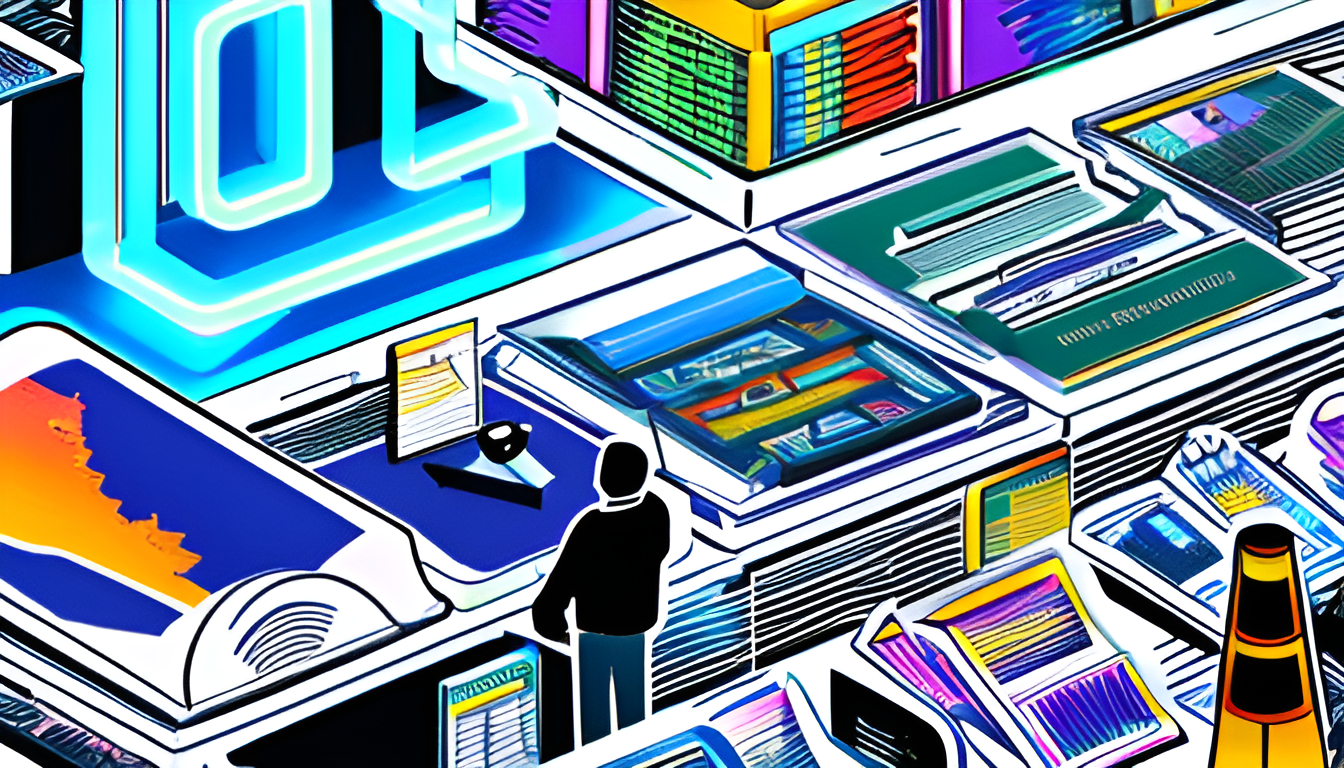
AI vs. Human Authors
The debate between AI-generated content and human authorship is heating up, and it’s a fascinating clash of creativity and technology. Can a machine truly capture the emotional depth and intricate nuances of human experiences? While AI can churn out narratives at lightning speed, the question remains: does it possess the spark of creativity that makes storytelling resonate? Imagine a world where your favorite novel is not written by a human but by an algorithm—sounds surreal, right?
AI tools have advanced tremendously, allowing them to produce coherent and engaging stories. Yet, they often lack the emotional intelligence that human authors naturally infuse into their work. Think about it: when you read a novel, you connect with the characters, feel their pain, and celebrate their victories. This emotional connection is something that AI struggles to replicate. It can analyze patterns and mimic styles, but can it really understand the human condition?
Moreover, human authors bring a unique perspective shaped by their personal experiences, cultural backgrounds, and emotional journeys. This individuality adds layers to their storytelling that AI simply cannot emulate. For instance, consider how different authors tackle themes like love, loss, or identity. Each writer’s voice is distinct, creating a rich tapestry of narratives that reflect our diverse world.
In contrast, AI-generated stories might tend to follow predictable formulas, leading to a risk of homogenization in literature. While efficiency is a significant advantage, the essence of storytelling—its ability to challenge, provoke, and inspire—might be compromised. As we navigate this evolving landscape, it’s crucial to ponder: will AI complement human creativity, or will it overshadow it?
Reader Reception of AI Literature
As we dive into the world of AI-generated novels, it’s essential to consider how readers are reacting to this groundbreaking shift in storytelling. Many readers are curious about the capabilities of artificial intelligence, while others are suspicious of its ability to evoke genuine emotion and creativity. Can a machine really capture the essence of the human experience, or will it always fall short?
Interestingly, a growing number of readers have begun to embrace AI literature, finding novelty and innovation in its unique narratives. They appreciate the fresh ideas that AI can bring to the table, often leading to stories that are unlike anything they’ve encountered before. However, there are also concerns regarding the authenticity of these works. Readers often wonder if the lack of a human touch might lead to a disconnect in emotional engagement.
A recent survey highlighted the diverse opinions among readers:
| Opinion | Percentage |
|---|---|
| Embracing AI Literature | 40% |
| Skeptical but Open | 35% |
| Rejecting AI Literature | 25% |
Ultimately, the reception of AI-generated novels is a mixed bag. While some readers are excited about the possibilities, others remain cautious, reflecting a broader conversation about the role of technology in creative fields. As AI continues to evolve, it will be fascinating to see how these perceptions shift and whether AI can win over the hearts of literary enthusiasts.
The Role of Editors and Publishers
As we plunge deeper into the world of AI-generated novels, the roles of editors and publishers are undergoing a fascinating transformation. Traditionally, these gatekeepers have been the backbone of the literary world, ensuring that every story is polished to perfection before it reaches the eager hands of readers. However, with the rise of AI, their responsibilities are evolving in ways we never imagined.
Imagine a scenario where an editor is no longer just a meticulous proofreader but also a collaborator with AI. This shift allows for a more dynamic interaction where editors can harness AI’s capabilities to uncover unique narrative angles or even generate initial drafts. The synergy between human intuition and machine efficiency can lead to stories that are not only compelling but also innovative. However, this raises a critical question: Will the essence of human storytelling be lost in the process?
Moreover, publishers are now faced with the challenge of adapting their business models to accommodate this new wave of content. They must decide how to integrate AI-generated works into their catalogs while maintaining quality and authenticity. This could mean developing new evaluation criteria for manuscripts that consider the AI’s influence. For instance, a table outlining the differences between traditional and AI-generated publishing processes could clarify these changes:
| Aspect | Traditional Publishing | AI-Generated Publishing |
|---|---|---|
| Creation Process | Human authors create stories | AI assists or generates narratives |
| Editing | Human editors refine content | AI tools provide suggestions |
| Market Adaptation | Slow and methodical | Quick adjustments based on data |
In conclusion, as AI continues to shape the literary landscape, editors and publishers must embrace these changes while staying true to the heart of storytelling. Their ability to adapt will not only define their future but also influence the very fabric of literary culture.
Ethical Considerations
The rise of AI-generated novels brings with it a plethora of ethical dilemmas that cannot be ignored. As we embrace this technology, we must ask ourselves: who truly owns the story? The lines between authorship and automation blur significantly when a machine can churn out narratives that mimic human creativity. This raises questions about authorship rights and intellectual property. If an AI produces a bestseller, who gets the credit? The programmer, the user, or the AI itself?
Moreover, there’s the risk of misinformation. AI systems learn from existing data, which can include biased or inaccurate information. Consequently, the stories they generate may inadvertently perpetuate stereotypes or false narratives. This potential for harmful content necessitates a careful examination of the data fed into these systems and the guidelines governing their output.
Another crucial aspect is the impact on creative professions. As AI takes on a more significant role in writing, what happens to traditional authors? The fear of being replaced can stifle creativity and innovation among human writers. It’s essential to recognize that while AI can assist in the writing process, it should not overshadow the unique perspectives and emotional depth that human authors bring to storytelling.
In summary, as we navigate this exciting yet challenging terrain, we must prioritize ethical considerations. Establishing clear guidelines and fostering a dialogue among authors, publishers, and technology developers will be vital in ensuring that AI serves as a tool for creativity rather than a replacement for it.
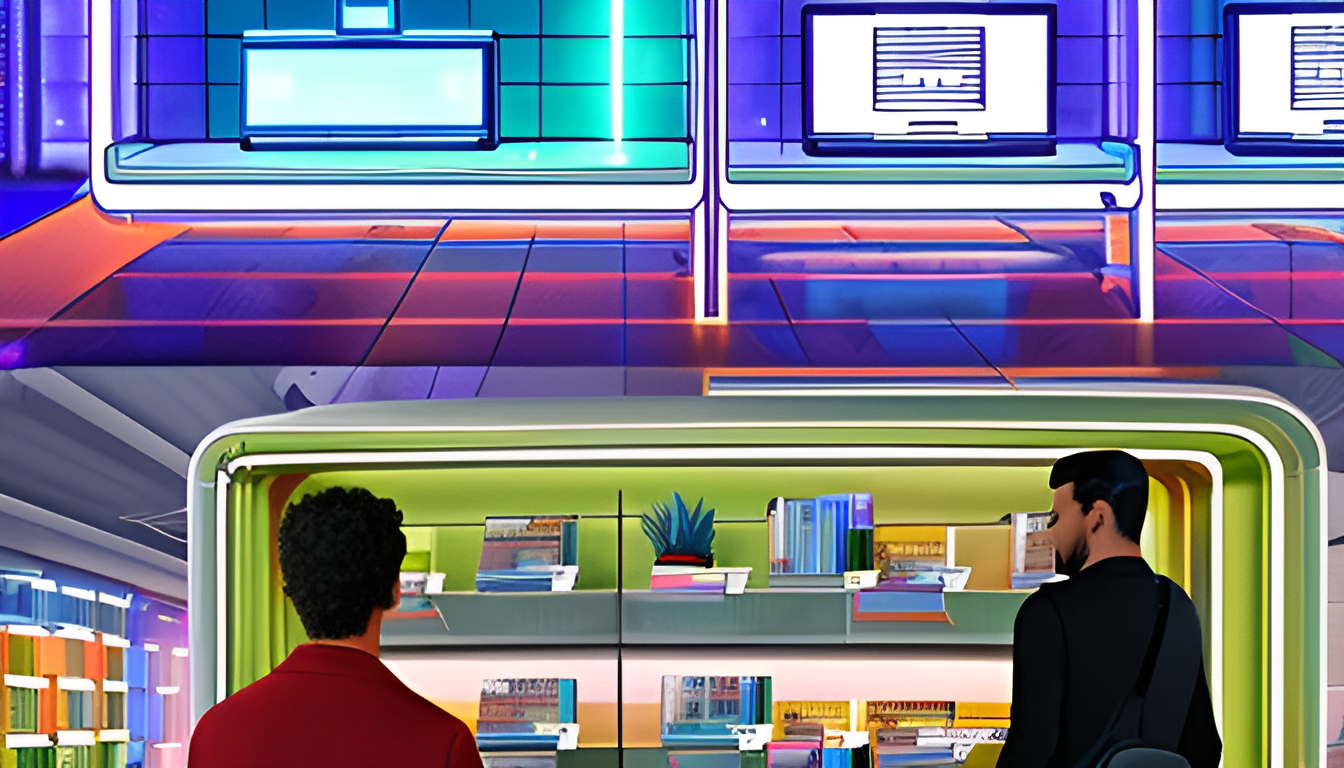
Future Trends in AI Storytelling
The landscape of storytelling is poised for a radical transformation as AI technology continues to evolve. Imagine a world where your favorite stories adapt to your mood, preferences, and even your reading speed! This isn’t just a fantasy; it’s the direction AI storytelling is heading. As algorithms become more sophisticated, we can expect to see interactive narratives that respond in real-time to reader choices, creating a personalized experience that traditional novels simply can’t match.
Moreover, the integration of virtual reality (VR) and augmented reality (AR) into AI storytelling will likely take immersion to a whole new level. Picture walking through a story, interacting with characters, and influencing the plot as if you were part of the narrative. This could redefine what it means to be a reader, blurring the lines between reader and participant.
Another exciting trend is the rise of collaborative storytelling. AI could serve as a co-writer, helping authors brainstorm ideas or even drafting chapters based on prompts. This partnership might lead to a surge in creativity, allowing human authors to focus on deeper themes and emotional arcs while AI handles the structural elements. However, this raises questions about authorship and originality, which we must navigate carefully.
As we look to the future, it’s clear that AI storytelling will not only enhance the way we consume literature but also challenge our traditional notions of creativity and authorship. The potential for personalized reading experiences is immense, and as we embrace these advancements, the literary world will undoubtedly continue to evolve in fascinating ways.
Case Studies of AI-Generated Novels
The emergence of AI-generated novels has sparked a whirlwind of curiosity and debate in the literary world. One of the most notable examples is “1 the Road”, a novel created by an AI named Benjamin. This book is a fascinating experiment that mimics Jack Kerouac’s spontaneous prose style, showcasing how AI can produce narratives that echo human creativity. Readers have been both intrigued and bewildered by its erratic yet compelling storytelling.
Another significant case is “The Day a Computer Writes a Novel”, a project that involved AI co-writing a novel with human input. This collaboration raised questions about authorship and the essence of creativity. The novel was even submitted to a literary competition, prompting discussions about whether AI can truly be considered an author. The reception was mixed, with some praising its innovation while others felt it lacked the emotional depth that human authors typically provide.
To better understand the impact of these AI-generated works, we can look at a few key factors:
| Novel Title | AI Involved | Reception |
|---|---|---|
| 1 the Road | Benjamin | Intriguing but erratic |
| The Day a Computer Writes a Novel | Collaborative AI | Mixed; questions on authorship |
These case studies highlight the potential of AI in literature, but they also raise important questions about the future of storytelling. As we explore these narratives, we must consider: can AI truly capture the nuances of human experience, or will it always remain a reflection of its programming? The journey of AI-generated novels is just beginning, and the literary landscape is poised for a transformation unlike any we’ve seen before.
The Impact on Literary Culture
The emergence of AI-generated novels is not just a technological marvel; it’s a seismic shift in the very fabric of literary culture. Imagine walking into a bookstore where half the shelves are filled with books crafted by algorithms. Sounds surreal, right? But this is becoming our new reality. As AI continues to evolve, it challenges traditional notions of authorship and creativity, prompting both excitement and skepticism among readers and writers alike.
One significant impact is the democratization of storytelling. With AI tools, aspiring authors can easily generate ideas, plot twists, and even entire narratives without needing extensive writing experience. This opens the floodgates for diverse voices that may have previously felt marginalized in the literary world. However, this influx of content raises questions about quality and originality. Are we witnessing a renaissance of creativity, or are we diluting the essence of storytelling?
Moreover, established authors are feeling the heat. They must adapt to a landscape where AI can churn out stories at lightning speed. This has led to a fascinating blend of collaboration and competition. Some authors are embracing AI as a co-writer, using it to spark inspiration or overcome writer’s block. Others, however, worry that their unique perspectives might be overshadowed by the sheer volume of AI-generated content.
Ultimately, the impact of AI on literary culture is profound and multifaceted. It invites us to reconsider what it means to be a writer and the value of human creativity in an age dominated by algorithms. As we navigate this uncharted territory, one thing is clear: the conversation around AI in literature is just beginning, and its implications will resonate for generations to come.
Frequently Asked Questions
- What are AI-generated novels?
AI-generated novels are stories created using artificial intelligence algorithms. These systems analyze vast amounts of data to construct narratives, characters, and plots, often producing unique and innovative content.
- Can AI really write a novel?
Absolutely! While AI can generate coherent and engaging narratives, the debate continues about whether it can replicate the emotional depth and creativity that human authors bring to their work.
- What are the benefits of AI in storytelling?
AI offers numerous advantages, such as increased efficiency in writing, the ability to generate fresh ideas, and the capacity to create tailored content for diverse audiences, making storytelling more accessible.
- Are there any challenges with AI-generated literature?
Yes, some challenges include the lack of emotional nuance, potential plagiarism issues, and the risk of producing homogenized stories that lack individuality.
- How do readers feel about AI-generated novels?
Reader reception varies widely; some are intrigued by the novelty, while others express concerns about authenticity and the emotional resonance of AI-created stories.
- What ethical issues surround AI-generated novels?
Key ethical considerations include authorship rights, the potential for misinformation, and the impact on traditional creative professions, raising questions about the future of writing.
